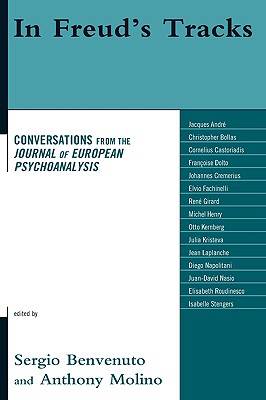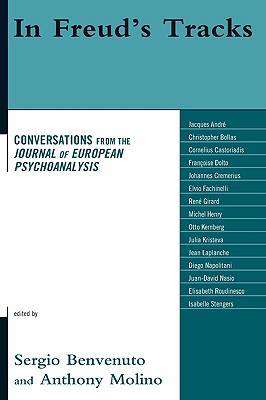
- Afhalen na 1 uur in een winkel met voorraad
- Gratis thuislevering in België vanaf € 30
- Ruim aanbod met 7 miljoen producten
- Afhalen na 1 uur in een winkel met voorraad
- Gratis thuislevering in België vanaf € 30
- Ruim aanbod met 7 miljoen producten
Zoeken
In Freud's Tracks
Conversations from the Journal of European Psychoanalysis
€ 203,95
+ 407 punten
Omschrijving
Hosting the likes of Bollas, Castoriadis, Cremerius, Dolto, Fachinelli, Kernberg, Kristeva, Laplanche, Roudinesco, and others, Anthony Molino and Sergio Benvenuto have convened some of the world's most prominent psychoanalysts in what Jeremy Safran calls "a beautifully edited and polished collection, one [that offers] a deepened appreciation of the potential that psychoanalysis has as a vitally alive intellectual discipline and a powerful cultural and political force." In the driving spirit of the Journal of European Psychoanalysis, In Freud's Tracks marks an ongoing celebration of the promise and freedom in any genuine psychoanalytic enterprise.
Specificaties
Betrokkenen
- Uitgeverij:
Inhoud
- Aantal bladzijden:
- 248
- Taal:
- Engels
- Reeks:
Eigenschappen
- Productcode (EAN):
- 9780765706300
- Verschijningsdatum:
- 16/12/2008
- Uitvoering:
- Hardcover
- Formaat:
- Ongenaaid / garenloos gebonden
- Afmetingen:
- 152 mm x 231 mm
- Gewicht:
- 498 g

Alleen bij Standaard Boekhandel
+ 407 punten op je klantenkaart van Standaard Boekhandel
Beoordelingen
We publiceren alleen reviews die voldoen aan de voorwaarden voor reviews. Bekijk onze voorwaarden voor reviews.










